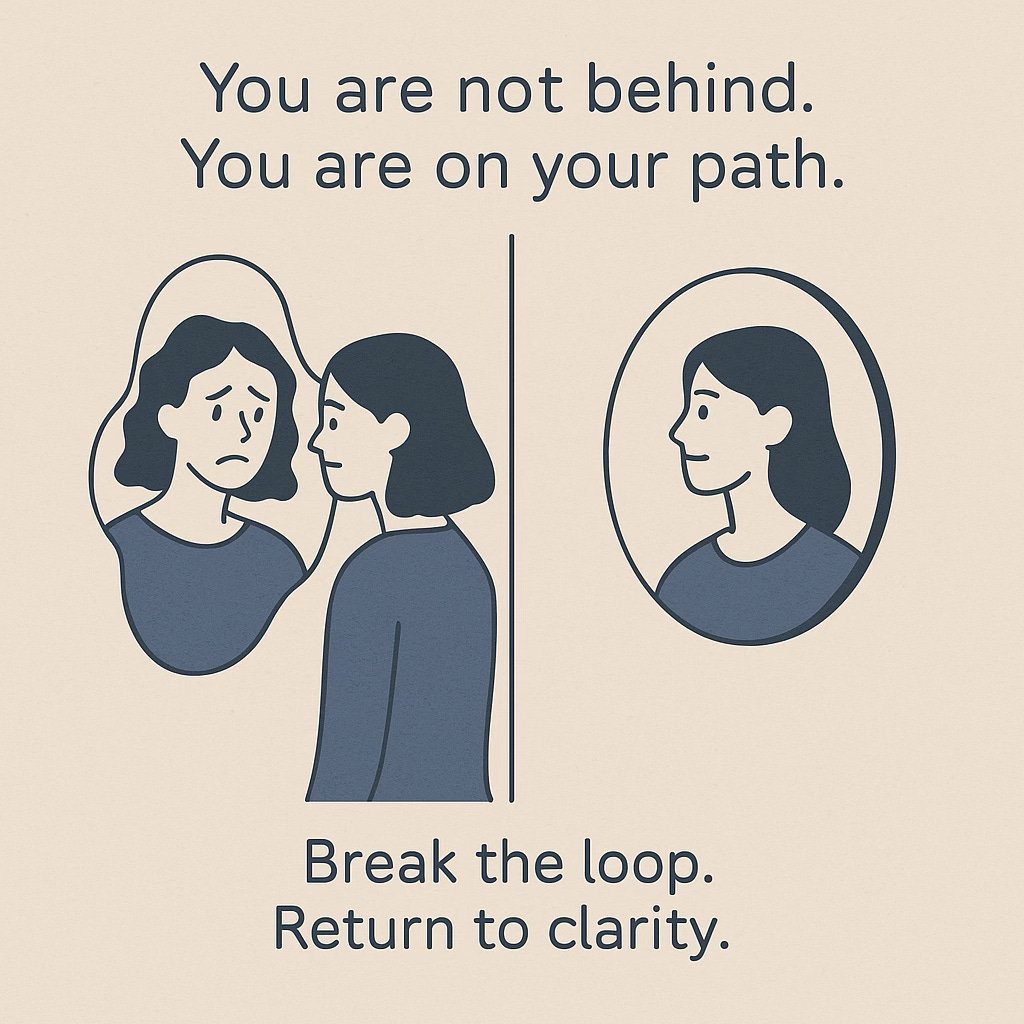From Self-Criticism to Clarity
Breaking the Overthinking and Comparison Loop
Have you ever looked at someone else’s success and thought:
“Why am I not there yet?”
Followed closely by:
“Maybe I’m just not good enough.”
Welcome to the loop where self-criticism and comparison feed each other like mirrors in a hall of distortion. And the longer we stay in it, the more disconnected we feel from our own clarity, progress, and purpose.
This loop is one of the most common traps I see in coaching. It doesn’t just steal confidence, it corrodes creativity, peace of mind, and decision-making.
So let’s untangle it using tools from modern psychology and ancient wisdom.
The Loop: How Comparison Fuels Criticism
Here’s how it usually plays out:
You see someone doing something you aspire to (career, parenting, wellness, leadership).
Instead of inspiration, it triggers self-doubt. “I should be further along.”
That self-doubt becomes inner criticism. “What’s wrong with me?”
You feel low, stuck, and uncertain.
You go online… and the cycle restarts.
Social media, work environments, and even well-meaning conversations can unintentionally feed this loop.
It’s not about ambition, it’s about perception.
And distorted perception leads to reactive choices, burnout, and emotional fatigue.
What Modern Psychology Says
When we fall into the habit of comparing, replaying, or overanalysing, we activate the brain’s Default Mode Network, the system responsible for internal chatter, social comparison, and imagined scenarios.
This network pulls attention away from the present and floods the mind with:
What will they think?
Where do I fall short?
What if it all goes wrong?
Over time, this habitual loop weakens the prefrontal cortex (the clarity and decision-making centre) and strengthens the amygdala (your fear and threat response).
In short:
The more you compare, the more reactive you become.
The more reactive you become, the harder it is to connect with your true self.
Beyond the Noise
You are not the limited version of yourself that your mind keeps replaying.
You are expansive far beyond your job title, daily roles, or the stories you’ve been told.
As Sri Sri Ravi Shankar reminds us in his commentary on the Ashtavakra Gita, your true nature isn’t confined by comparison or labels. It’s vast. Quietly powerful.
Patanjali’s Yoga Sutras offer a practical gateway to reconnect with this truth: svadhyaya - the art of self-study.
But this isn’t about fixing what’s wrong. It’s about noticing. Becoming aware. Without judgement.
When you pause, really pause, you begin to meet the version of you untouched by pressure, timelines, or expectation.
That version has clarity. Stillness. Strength.
3 Tools to Break the Loop
1. Catch the Critic. Name the Voice.
The moment you hear a critical thought (“I’m not enough,” “I always mess up”), label it.
Name it gently: “That’s the old inner critic. I see you.”
Naming disempowers the pattern and creates space between you and the thought.
2. Switch Comparison into Compassion
When you catch yourself comparing, pause and ask:
What can I learn from this person?
Can I admire without measuring?
How can I celebrate their journey and honour mine?
This reframe activates empathy, which resets the nervous system and brings you back to connection.



